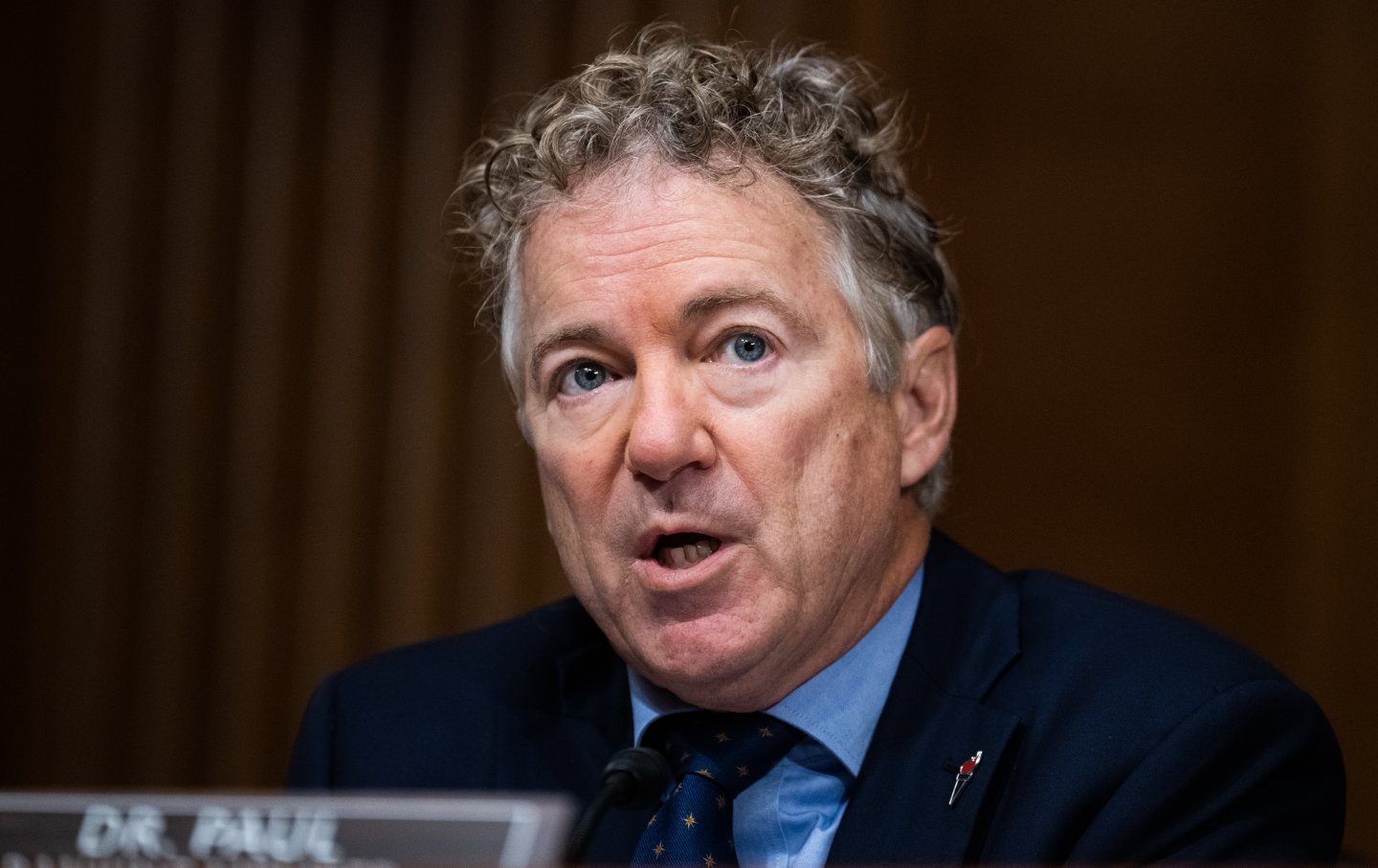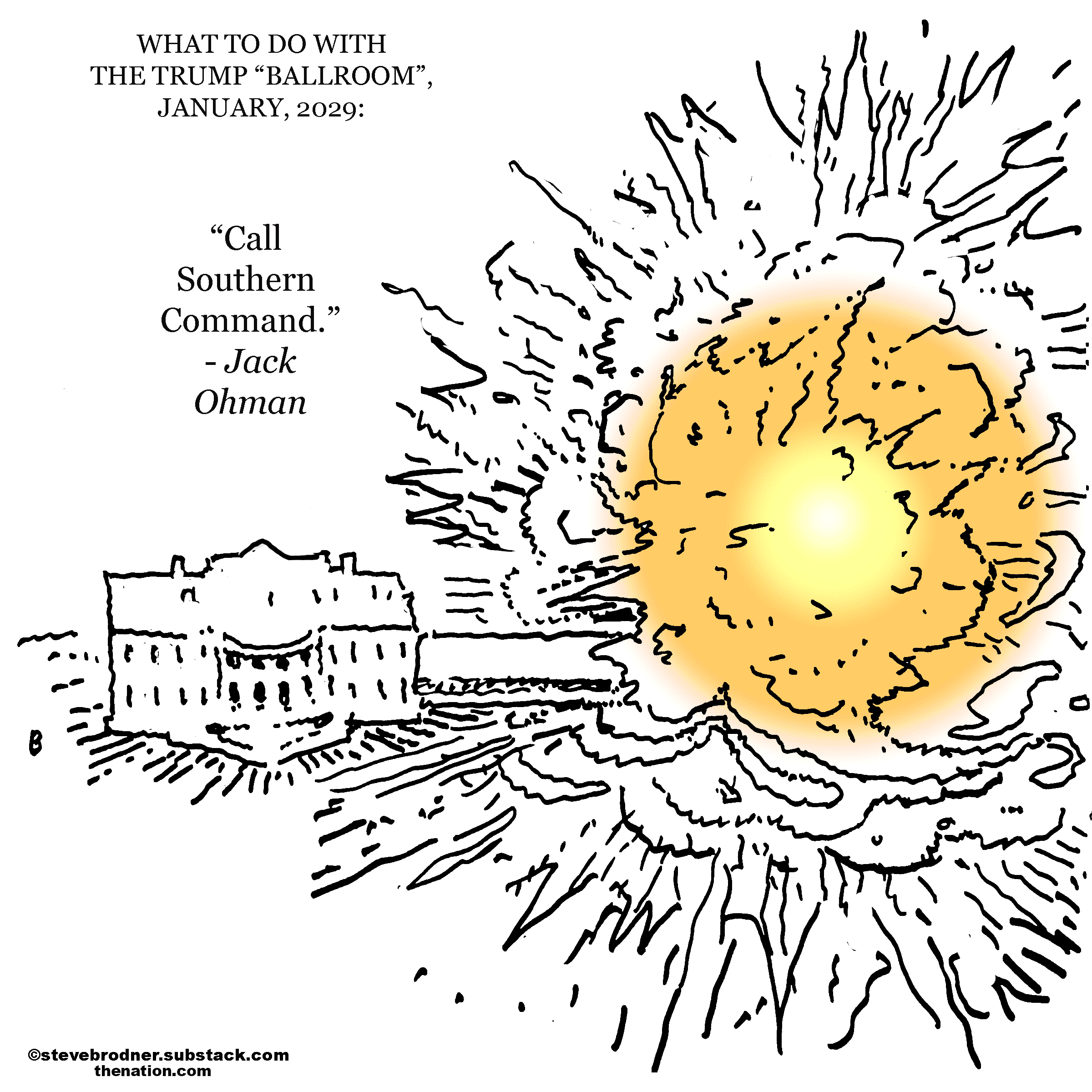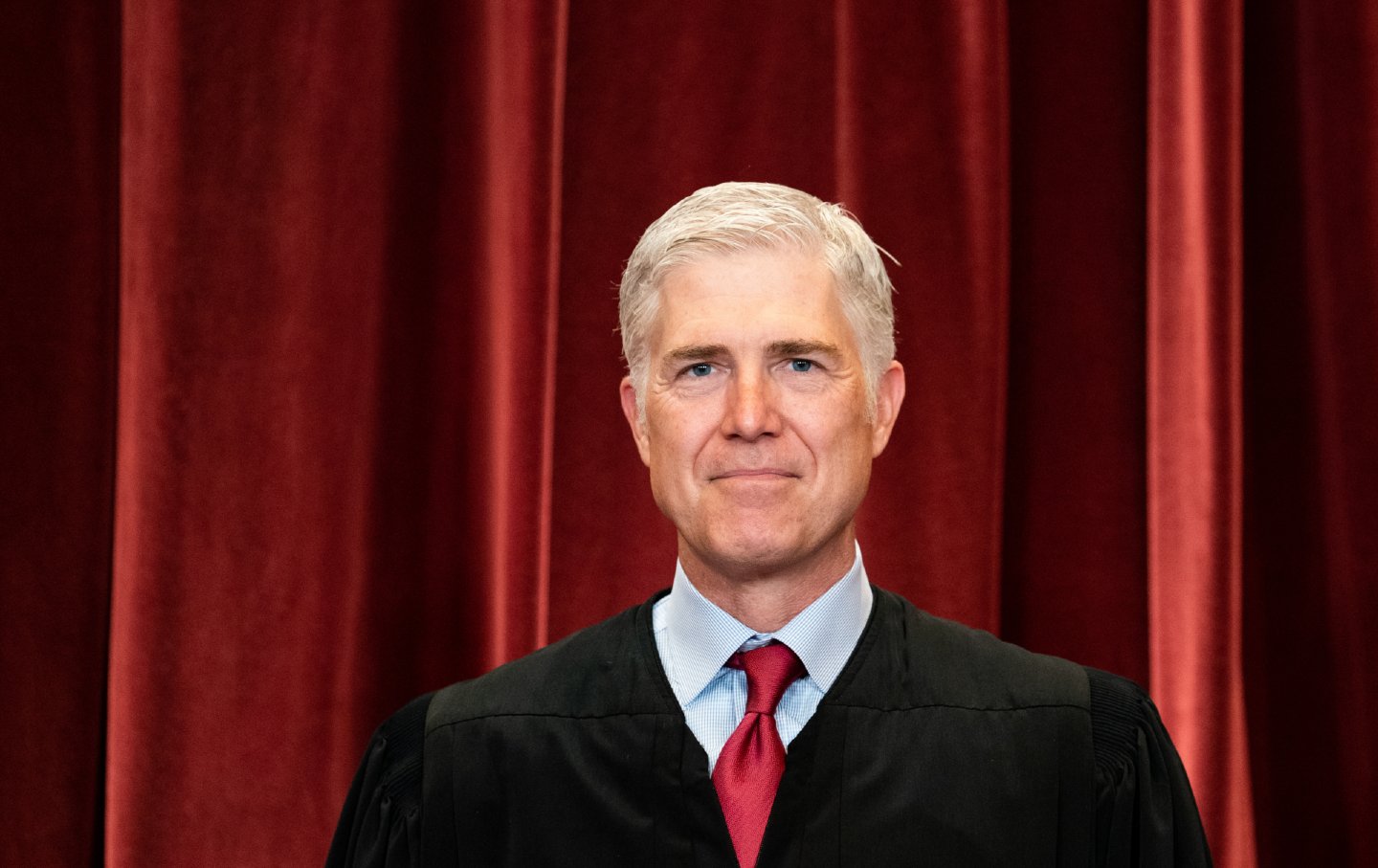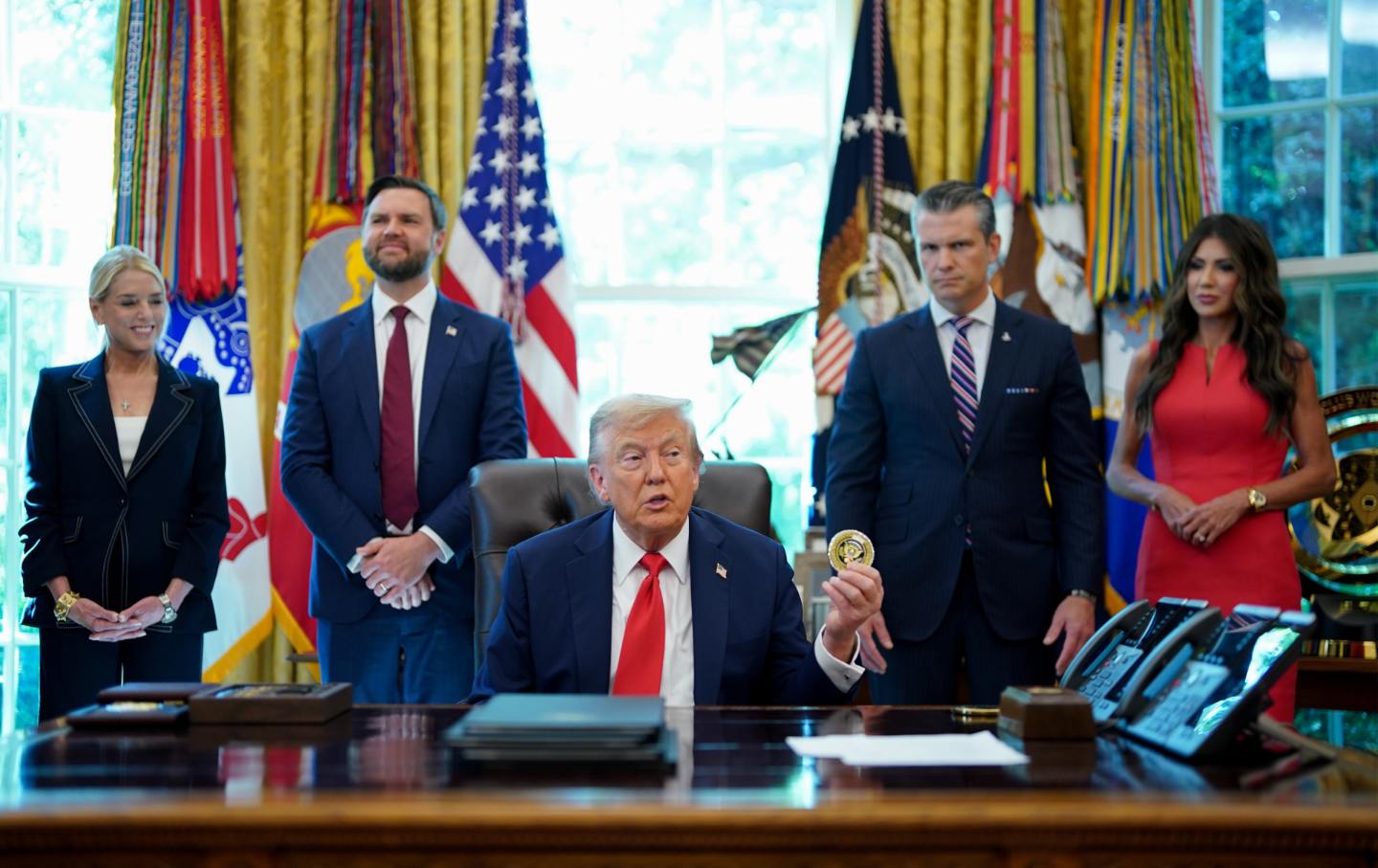Rand Paul Is Absolutely Right About Getting US Troops Out of Syria
An unlikely left-right coalition of a dozen senators just backed his proposal to end the authorized deployment.

Rand Paul at a Senate hearing on October 31, 2023.
(Tom Williams / CQ-Roll Call, Inc via Getty Images)Rand Paul has a long history of mounting lonely efforts to reassert the constitutionally defined responsibility of Congress to serve as a check and balance on US military adventurism—a duty that Congress has mostly abdicated for decades. And he did so again last week, with a War Powers Resolution proposal to end the American military presence in Syria.
This time, however, he wasn’t quite so lonely.
A dozen senators from both parties voted for Paul’s resolution, including some of the chamber’s leading Democrats, such as Senate majority whip Dick Durbin (D-Ill.) and Massachusetts Senator Elizabeth Warren, along with Vermont independent Bernie Sanders.
The unlikely coalition didn’t prevail. Eighty-seven senators opposed the resolution, which would have directed President Biden “to remove all US armed forces from hostilities in and affecting Syria within 30 days of its enactment.”
But that didn’t change the fact that Paul and the senators who voted with him were making an important point regarding the ill-defined and seemingly endless US mission in Syria.
“Keeping 900 US troops in Syria does nothing to advance American security. Rather, our intervention puts those service members at grave risk by providing an enticing target for Iranian-backed militias,” he explained. “Our continued presence risks the United States getting dragged into yet another regional war in the Middle East without debate or a vote by the people’s representatives in Congress. Congress must cease abdicating its constitutional war powers to the executive branch.”
The unauthorized deployment of US troops to Syria has been relegated so far to the background of foreign policy debates that most Americans are probably unaware that it has been going on for more than nine years. But the deployment has been in the news since tensions flared in the region following the October 7 attack by Hamas militants on Israeli kibbutizm and a music festival, and the launch of the ensuring Israeli military assault in Gaza.
According to an ABC News report from last week, “Iran-backed militias in Iraq have claimed responsibility for dozens of attacks that targeted bases housing U.S. troops in Iraq and Syria since the Israel-Hamas war erupted two months ago. The U.S. military says 78 attacks have been carried out against U.S. facilities over the past weeks, of which 43 were in Iraq and 41 in Syria.” Reuters noted in November, “The bombardment has only caused a few dozen minor injuries so far, with many of the rockets and one-way attack drones intercepted by U.S. air defenses.” But, the news service added, “David Schenker, a former U.S. assistant secretary of state at the Washington Institute for Near East Policy think-tank, cautioned that while neither Iran and its allied groups nor the U.S. appeared to want a direct confrontation, the risks were growing. The possibility of a major strike that draws America into a conflict is ‘a very realistic concern,’ he said.”
Paul shares that concern, as do the four other Republican senators who voted for the Syrian withdrawal resolution: Mike Braun of Indiana, Mike Lee of Utah, Tommy Tuberville of Alabama, and J.D. Vance of Ohio. The same goes for the Senate Democratic Caucus members who backed the measure: Durbin, Warren, Sanders, Ed Markey of Massachusetts, Jeff Merkley of Oregon, Chris Murphy of Connecticut, Peter Welch of Vermont, and Ron Wyden of Oregon.
They recognize that, while the US Constitution says that Congress has the sole power to declare wars, no war involving Syria has been declared.
Paul wants senators to respect their constitutional duty to check and balance presidential war-making in general, and, at a bare minimum in the current moment, to open up a serious debate about the deployment of US troops to stand in harm’s way and, potentially engage in combat, in an increasingly dangerous and unforgiving region.
“If we are going to deploy our young men and women in uniform to Syria to fight and potentially give their life for some supposed cause,” asks Paul, “shouldn’t we as their elected representatives at least debate the merits of sending them there? Shouldn’t we do our constitutional duty and debate if the mission we are sending them on is achievable?”
Disobey authoritarians, support The Nation
Over the past year you’ve read Nation writers like Elie Mystal, Kaveh Akbar, John Nichols, Joan Walsh, Bryce Covert, Dave Zirin, Jeet Heer, Michael T. Klare, Katha Pollitt, Amy Littlefield, Gregg Gonsalves, and Sasha Abramsky take on the Trump family’s corruption, set the record straight about Robert F. Kennedy Jr.’s catastrophic Make America Healthy Again movement, survey the fallout and human cost of the DOGE wrecking ball, anticipate the Supreme Court’s dangerous antidemocratic rulings, and amplify successful tactics of resistance on the streets and in Congress.
We publish these stories because when members of our communities are being abducted, household debt is climbing, and AI data centers are causing water and electricity shortages, we have a duty as journalists to do all we can to inform the public.
In 2026, our aim is to do more than ever before—but we need your support to make that happen.
Through December 31, a generous donor will match all donations up to $75,000. That means that your contribution will be doubled, dollar for dollar. If we hit the full match, we’ll be starting 2026 with $150,000 to invest in the stories that impact real people’s lives—the kinds of stories that billionaire-owned, corporate-backed outlets aren’t covering.
With your support, our team will publish major stories that the president and his allies won’t want you to read. We’ll cover the emerging military-tech industrial complex and matters of war, peace, and surveillance, as well as the affordability crisis, hunger, housing, healthcare, the environment, attacks on reproductive rights, and much more. At the same time, we’ll imagine alternatives to Trumpian rule and uplift efforts to create a better world, here and now.
While your gift has twice the impact, I’m asking you to support The Nation with a donation today. You’ll empower the journalists, editors, and fact-checkers best equipped to hold this authoritarian administration to account.
I hope you won’t miss this moment—donate to The Nation today.
Onward,
Katrina vanden Heuvel
Editor and publisher, The Nation
More from The Nation


The Supreme Court Has a Serial Killer Problem The Supreme Court Has a Serial Killer Problem
In this week's Elie v. U.S., The Nation’s justice correspondent recaps a major death penalty case that came before the high court as well as the shenanigans of a man who’s angling...

Corporate Democrats Are Foolishly Surrendering the AI Fight Corporate Democrats Are Foolishly Surrendering the AI Fight
Voters want the party to get tough on the industry. But Democratic leaders are following the money instead.

Marching Against a Corrupt Regime Marching Against a Corrupt Regime
People taking to the streets for democracy.

It Would Be Madness to Give Trump and His Toadies Even More Power It Would Be Madness to Give Trump and His Toadies Even More Power
And yet, that’s what the Supreme Court appears prepared to do.

Trump Is Dragging Republicans to Crushing Defeat After Crushing Defeat Trump Is Dragging Republicans to Crushing Defeat After Crushing Defeat
The president is deeply unpopular, his policies are failing, and Republicans are losing—everywhere.


